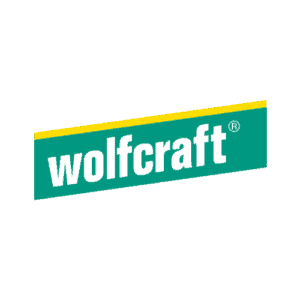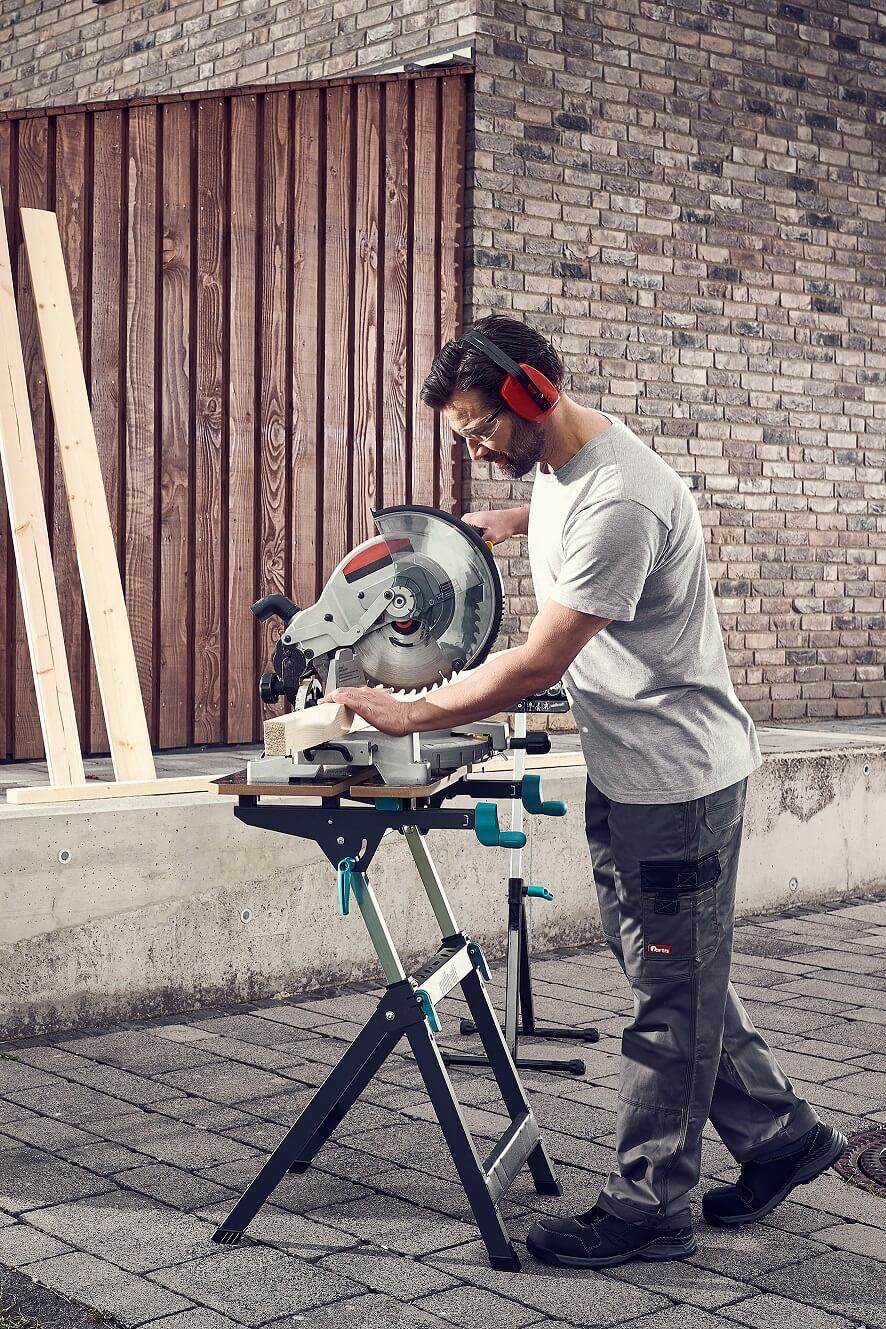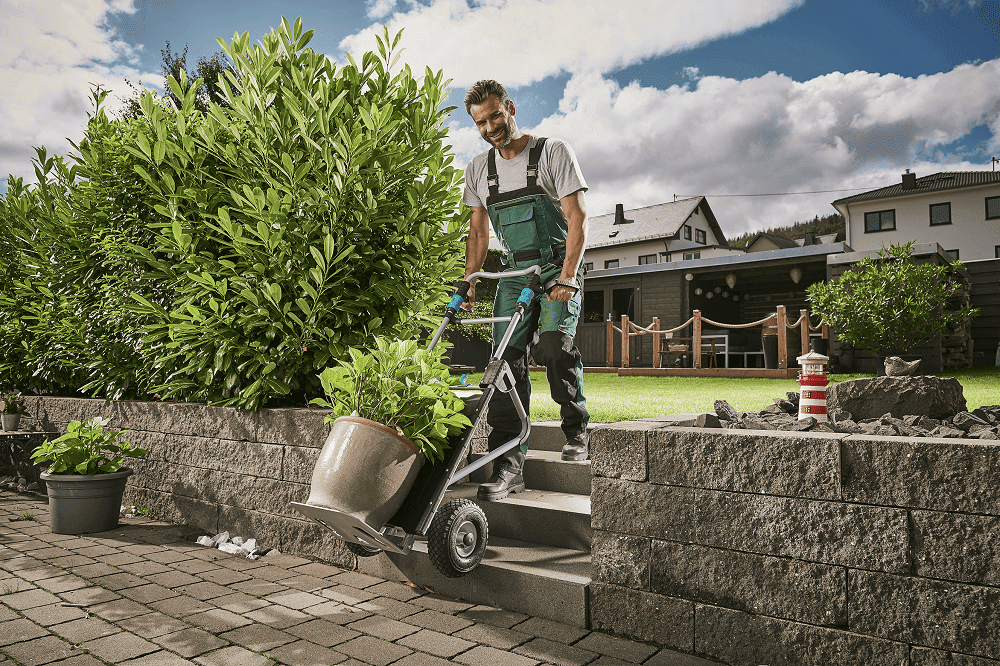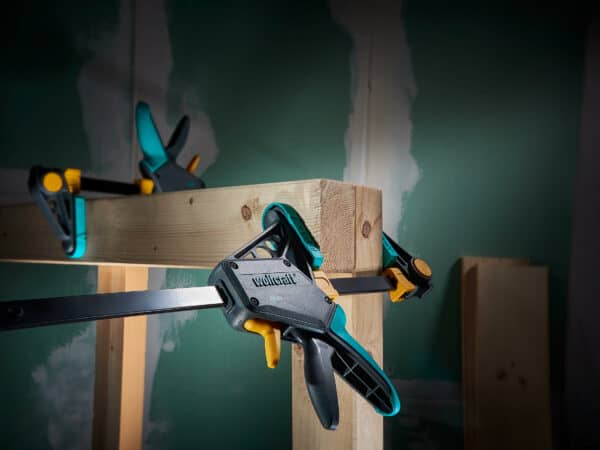
Whether laying laminate or drywall with plasterboard – for more than 70 years, wolfcraft has provided do-it-yourselfers with the tools to successfully complete their DIY projects. To ensure this into the future, the company has to keep reinventing itself.
A familiar situation for many DIYers: holding one piece with one hand, a clamp with the other and with the third… Of course, DIYers who usually work on their own can quickly become overwhelmed. At the end of the 1990s, wolfcraft launched a solution to this problem: the one-handed clamp, which closed using a simple mechanism. Continuous innovation and permanent change are part of wolfcraft’s business model. Founded in 1949, the tool manufacturer supplies DIY stores with all kinds of hand tools from Kempenich in the Eifel region. In 1961, the company was one of the first to come up with the idea of offering products specifically for DIY enthusiasts.
Manufacturing in Europe to guarantee quality
“One of our main focuses is tools for DIY projects,” says Reinhard Wolff, son of founder Robert Wolff, who runs the company with his brother Thomas. In addition to traditional hand tools and power tool accessories, the current range also includes assortments for laying laminate and tiles, drywall construction with plasterboard and many other projects.
Production takes place in the company’s own plants in Germany and Slovakia. “We place great importance on quality and sustainability, which is why we decided to produce in Europe,” explains Thomas Wolff.
our plant in Slovakia is not only extremely efficient thanks to its lean orientation but also very competent in processing metal, plastic, and wood – this material know-how can rarely be found under one roof.”
Thomas Wolff
Executive Director, wolfcraft gmbh


REINHARD WOLFF
Executive Director
wolfcraft GmbH


THOMAS WOLFF
Executive Director
wolfcraft GmbH
Highly digitalized processes for the online boom
The two entrepreneurs do a few other things differently than their competitors. In addition to traditional, multi-stage distribution, wolfcraft offers modern, digitally networked logistics concepts such as drop shipping, which is particularly essential for DIY stores with their own web stores and online retailers.
The advantage for online DIY stores is that they do not have to keep the tools in stock; the wolfcraft central warehouse in the Eifel region takes care of picking, packaging, and shipping. At wolfcraft, this has necessitated new, highly digitalized processes for warehousing and logistics, because unlike bulk orders of stationary trade, a shipping unit here usually consists of only a few items.
Moreover, a B2B2C business model of this kind is particularly interesting for founders: Anyone wanting to open up a conventional DIY store would first have to invest tens of millions. However, it only reaches customers within a radius of about 50 kilometers.
Online, however, it has around 100 million potential customers in the German-speaking world alone. “They can be served through drop shipping without capital investment,” says Reinhard Wolff. “All they have to do is attract customers to their store, and we take care of the logistics processes.”
For some years now, wolfcraft has demonstrated how tools can attract attention on the Internet with its various social media profiles and its very active YouTube channel, which is permanently manned by a team of five. There, followers of “Do it yourself” (DIY) can find hundreds of videos about tools and DIY. They explain how users of wolfcraft tools can best achieve their goals. Some focus on renovating a wooden staircase, while others explain how to use a specific tool. Numerous other videos have been created in collaboration with DIY YouTubers, who provide their own answer to wolfcraft’s question: “And what’s your next project?”.
This describes the family business’s secret to success: never stand still and always keep an eye on the next step. In this regard, the Wolffs have often been pioneers. For example, a profit-sharing model has been in place since 1973. Behind this is the idea that employees are not cost factors but people with entrepreneurial skills. They should profit from success.
Company succession regulated in good time
wolfcraft wants to tackle issues together with its employees, including digitalization on the shop floor and sustainability, for example, with product packaging made of paper instead of plastic. Much-cited “change” is everyday life for the company. However, the company still has its biggest change in recent times up ahead: regulating company succession.
“My brother and I agree: our children may continue if they want to. And fortunately, they do,” emphasizes Thomas Wolff. That is why both of them are currently focusing on handing over the business to the next, third generation of entrepreneurs.
But first, an external management is to be appointed, which will give the third generation the chance to develop independently and to see the family business as their own project.
The company
wolfcraft GmbH is a manufacturer and supplier of tools and power tool accessories and is considered a co-founder of the German DIY industry. The family business was founded in 1949 by Robert Wolff and is now managed in the second generation by his sons Thomas and Reinhard Wolff. Production takes place primarily in the company’s two own plants in Germany and in Malé Dvorniky (Slovakia).
1949
founded
700
employees
550
Patents
you might also be interested in

Plenty of Space for Creativity
Not all companies have managed to keep pace with change as impressively as ddm hopt+schuler. The company based in the German town of Rottweil has succeeded in continuously developing itself and its products for more than 50 years. The key to success, according to owner Karl-Rudolf Hopt, is a “a culture in which nothing is impossible”.
Read more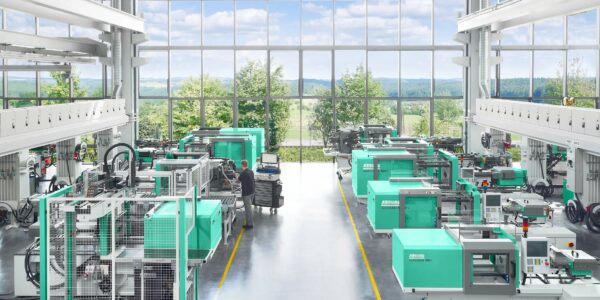
Communication, focus and commitment
In the plastics processing industry, too, the trend toward individualization is creating increasingly complex process landscapes. The machine manufacturer Arburg is responding to this with a comprehensive organizational change.
Read more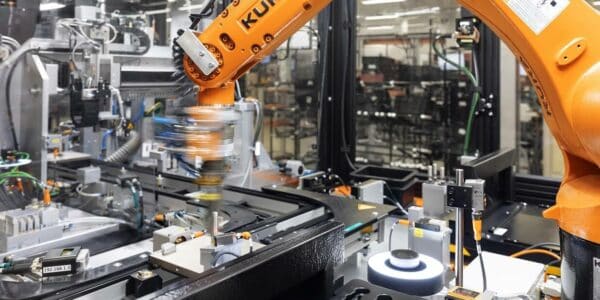
“Lean, digitalization and sustainability will be even more tightly interwoven.”
ifm is a leading supplier of innovative automation technology. Managing Director Bernd Hausler explains in an interview how digitalization is helping open up new fields of business and what challenges the industry will struggle with in the future.
Read more